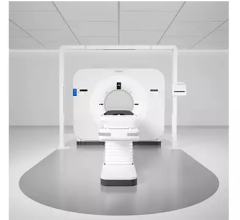November 24, 2015 — CERN, INFN and RaySearch Laboratories AB signed a long-term license agreement in September allowing RaySearch to utilize the FLUKA Monte Carlo code in its research and development in the field of ion beam therapy.
FLUKA is a general purpose tool for calculations of particle transport and interactions with matter, covering an extended range of applications spanning from proton and electron accelerator shielding to target design, calorimetry, activation, dosimetry, detector design, accelerator-driven systems, cosmic rays, neutrino physics and radiation therapy. The FLUKA code has been developed and is maintained by CERN and INFN and represents state-of-the-art in terms of simulation accuracy in areas where hadron interaction physics play an important role.
At RaySearch, the FLUKA code will be an essential tool for research and development in the field of ion beam therapy, which is the most advanced form of external radiation therapy where the tumor is irradiated using, for example, carbon ion beams. Compared to conventional radiation therapy, where the tumor is irradiated using photons, the energy deposition of the ion beams can be controlled more effectively. This means the radiation dose can be delivered even more precisely and, as a result, the unwanted dose to healthy tissues can be reduced, leading to a reduction in treatment-related side effects. In addition, radiation therapy with carbon ions can be used to target tumors with low levels of oxygen, so called hypoxic tumors, for which conventional radiation therapy has limited effect.
By the license agreement concluded, RaySearch is entitled to integrate data generated by the FLUKA code into algorithms of RaySearch’s treatment planning system, RayStation. Ongoing development will comprise a new module for carbon ion treatment optimization, where FLUKA results will be input to pencil beam and Monte Carlo dose engines, and into computations of relative biological effectiveness. The new module will be included in version 5 of RayStation, to be released in December 2015. MedAustron in Wiener Neustadt in Austria and Centro Nazionale di Adroterapia Oncologica (CNAO) in Pavia, Italy, will be the first centers to use RayStation clinically for carbon ion treatment planning.
For more information: www.raysearchlabs.com


 December 11, 2025
December 11, 2025 









